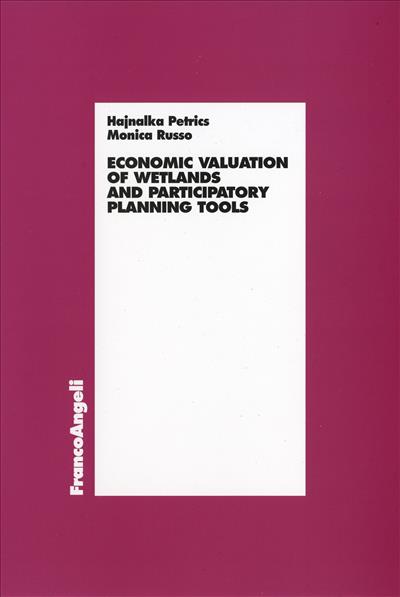
Hajnalka Petrics, Monica Russo
Economic valuation of wetlands and partecipatory planning tools
Pagine: 128
ISBN: 9788846482648
Edizione: 1a edizione 2006
Codice editore: 365.492
Disponibilità: Discreta

Hajnalka Petrics, Monica Russo
Pagine: 128
ISBN: 9788846482648
Edizione: 1a edizione 2006
Codice editore: 365.492
Disponibilità: Discreta